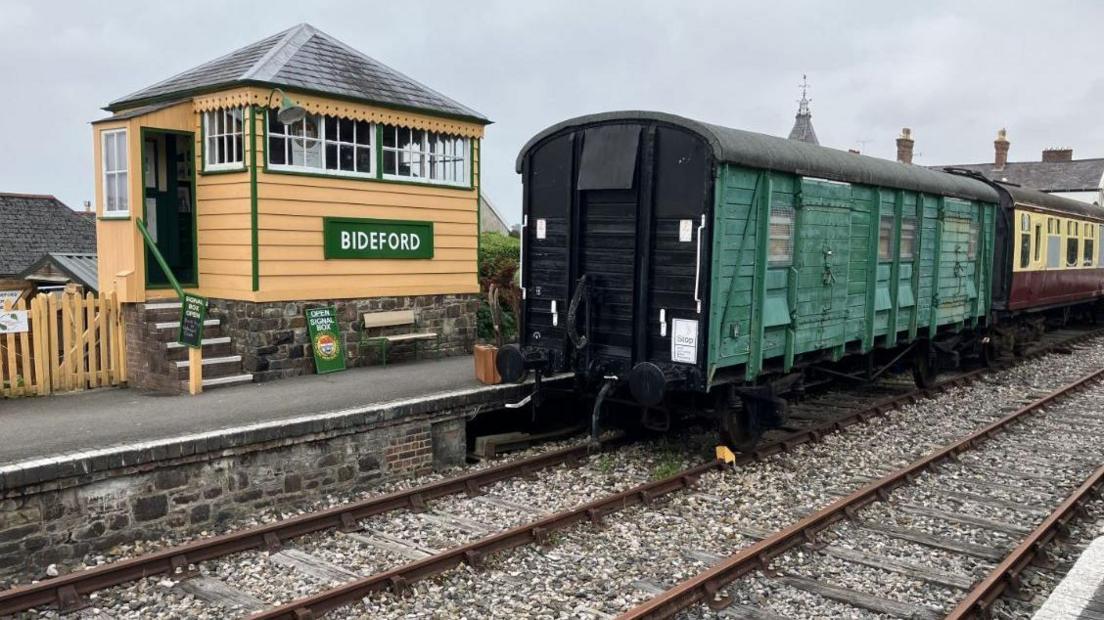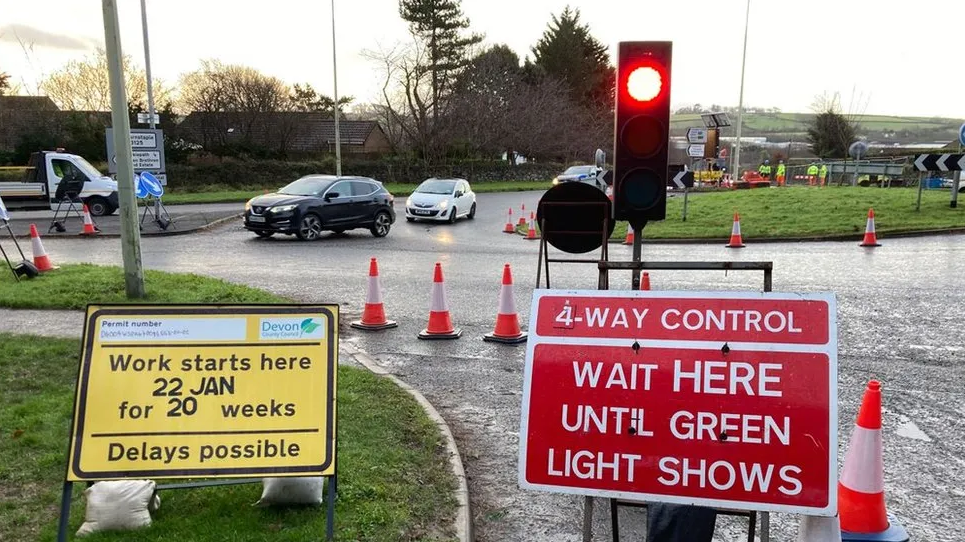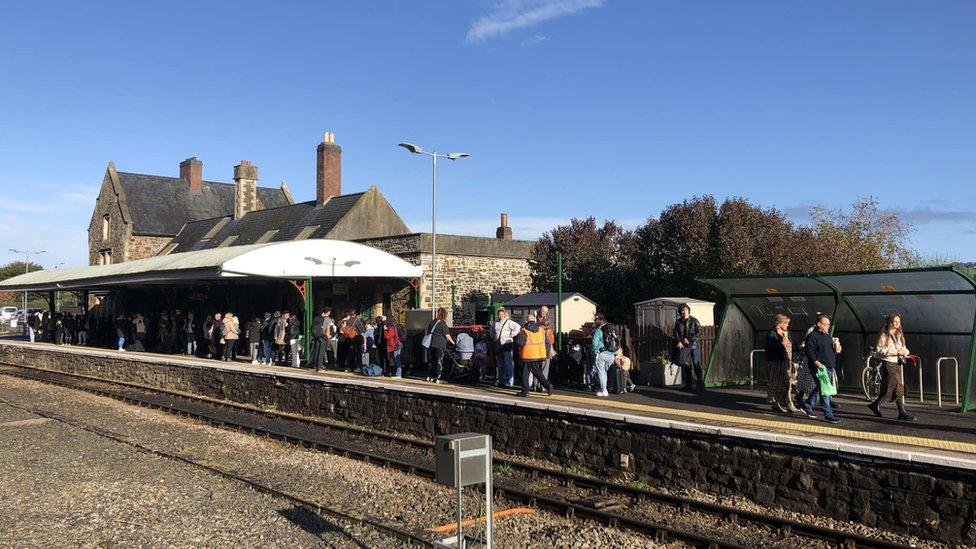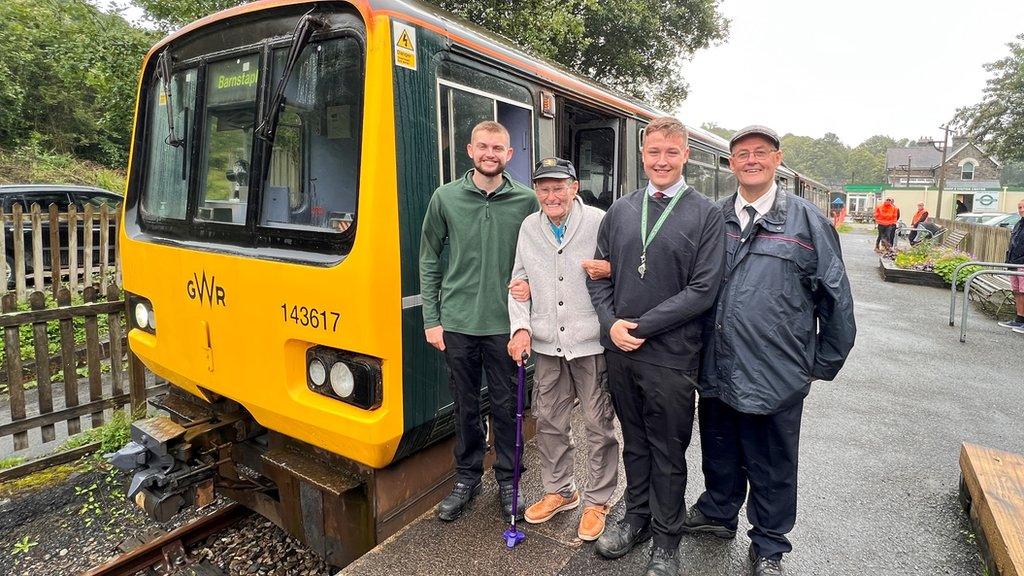Call for return of Devon town's train services

Passenger services were last run to Bideford railway station in 1965
- Published
Bringing back train services to a Devon town could provide a boost to transport further afield, a rail user group has said.
Campaigners have called for Great Western Railway (GWR) to bring back services to Bideford nearly 60 years after passenger trains stopped running there due to cuts.
Tim Steer, vice-chairmain of the Tarka Rail Association, said getting trains back to Bideford could ease congestion in Barnstaple.
GWR said a decision on bringing back trains to Bideford would depend on the business case put forward for the idea.

The Tarka Rail Association's Tim Steer wants a more sustainable public transport system
Bideford's station closed in 1965 as part of the Beeching cuts, which spelled the end for thousands of miles of railway and stations.
Campaigners have called for the station to be linked back to the Tarka Line, which runs passenger services between Exeter and Barnstaple.
Mr Steer said traffic congestion had become a problem on Barnstaple's roads.
Earlier this year, Devon County Council apologised to drivers after roadworks at the Cedars roundabout near Barnstaple caused severe traffic delays.

Mr Steer said giving people the option of travelling between Barnstaple and Bideford by train could help ease road congestion.
"We need to have a better sustainable public transport system to help serve the public," he said.
'About being connected'
Lewis Andrews, from the Bideford Railway Heritage Centre, said people in Bideford were envious of Okehampton after its railway station was brought back in November 2021
"This is actually about being connected to the outside world," he said.
"If you look at the benefits its had to the people and the economy of Okehampton, we want a bit of that for Bideford."
Matt Barnes, GWR's head of strategic service development, said deciding whether to bring back trains to Bideford would depend on outlining the potential benefits.
"Ultimately it comes down to the ability to make business cases and that is always the challenge," Mr Barnes said.
"What level of benefits, how much revenue you'll bring and how big an impact it will have in terms of opportunities for people and that's different everywhere."
Analysis by Martyn Oates, BBC South West political editor
A lot has happened to the rail industry since the 2019 general election, mainly thanks to Covid, with passenger numbers and revenue remaining significantly below pre-pandemic levels.
Rail fares continue to rise – not an obvious incentive to get people back on the trains – while the taxpayer continues to subsidise rail travel.
Covid also brought the end of the old system of rail franchising where the train operating companies had the freedom to grow profits in return for shouldering the financial risk.
Now the government takes on the risk and pays the companies a flat fee for running services.
This would continue under the Conservatives' plans to reform the sector under the auspices of a publicly-owned body called Great British Railways – plans first published three years ago.
The Liberal Democrats also support the creation of this "guiding mind", as does Labour, although the latter would go a step further and gradually bring each train operating franchise into public ownership as it comes up for renewal.
All three talk of simplifying and standardising fares and ticketing.
Follow BBC Devon on X (formerly Twitter), external, Facebook, external and Instagram, external. Send your story ideas to spotlight@bbc.co.uk, external.
Related topics
- Published13 May 2024

- Published23 December 2023

- Published6 August 2023
